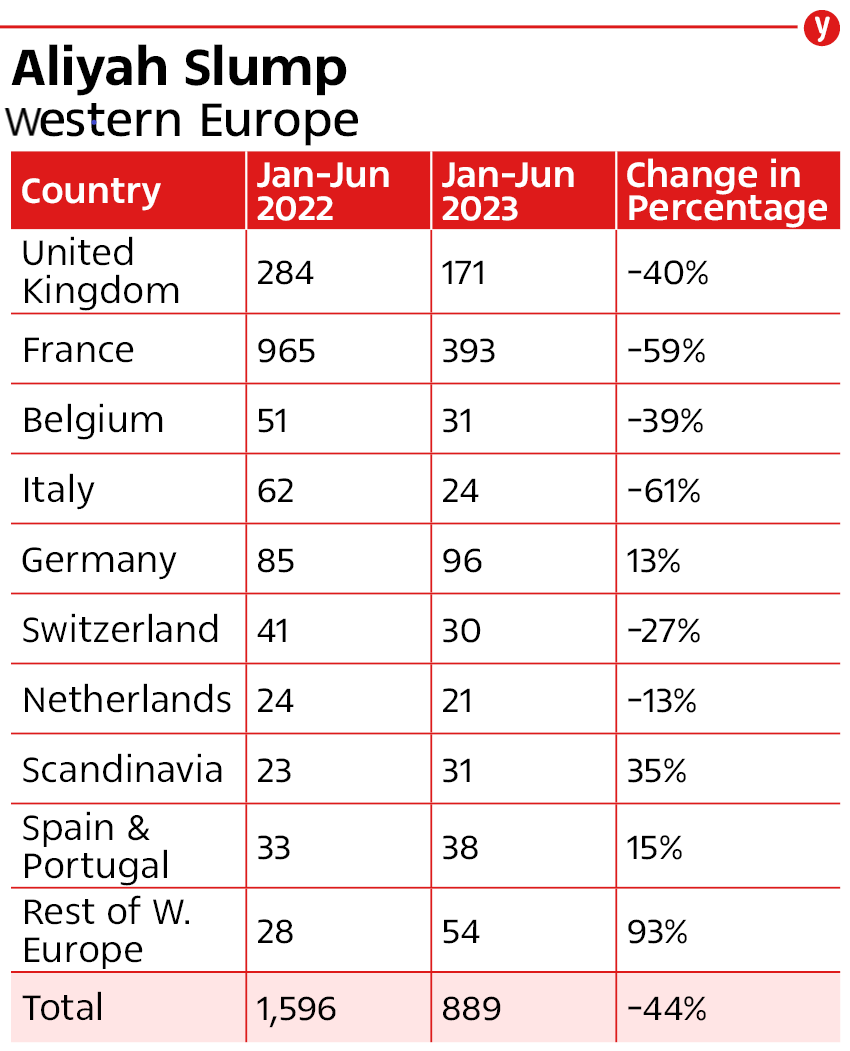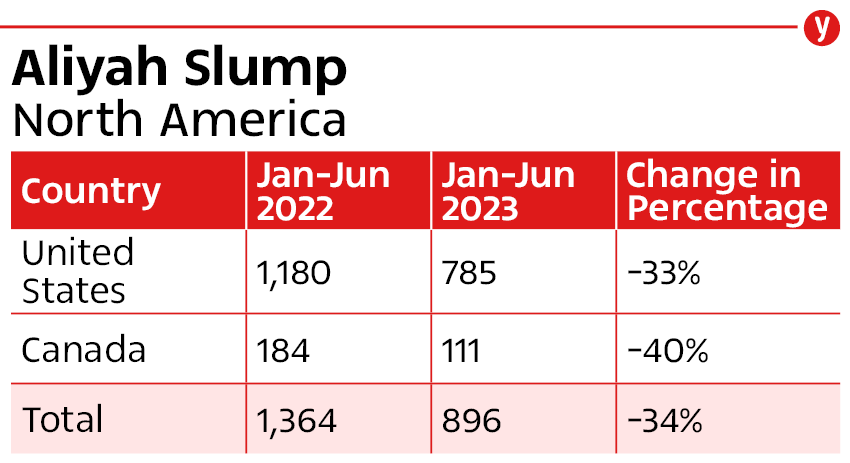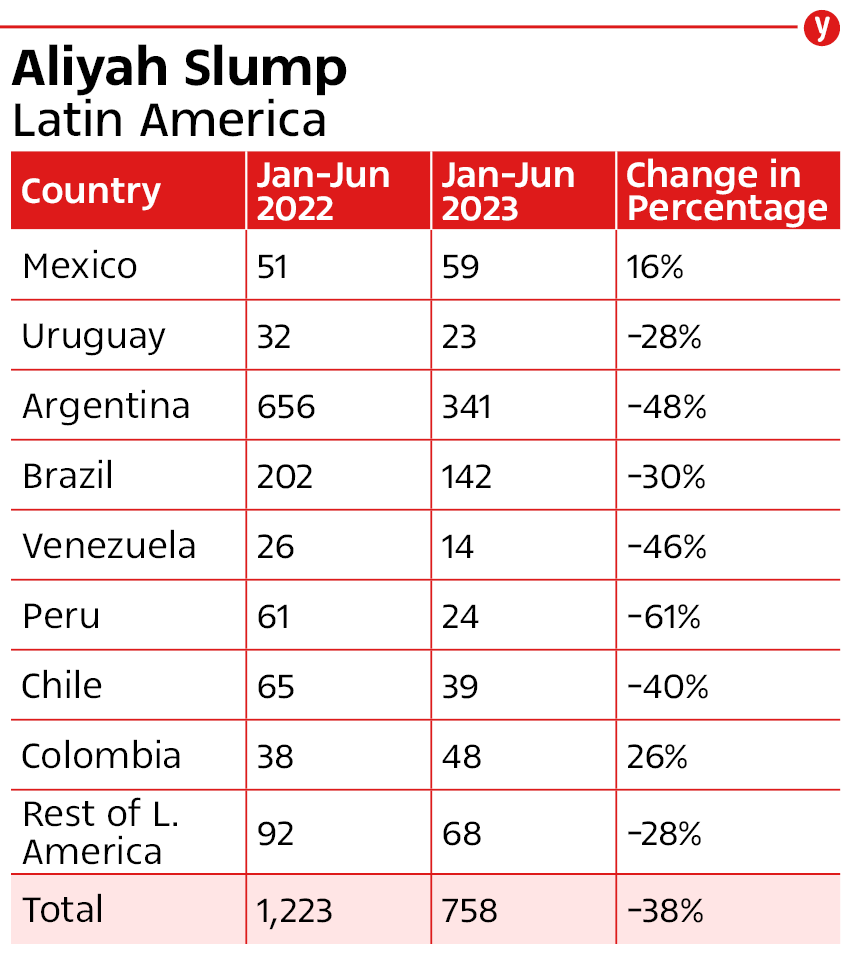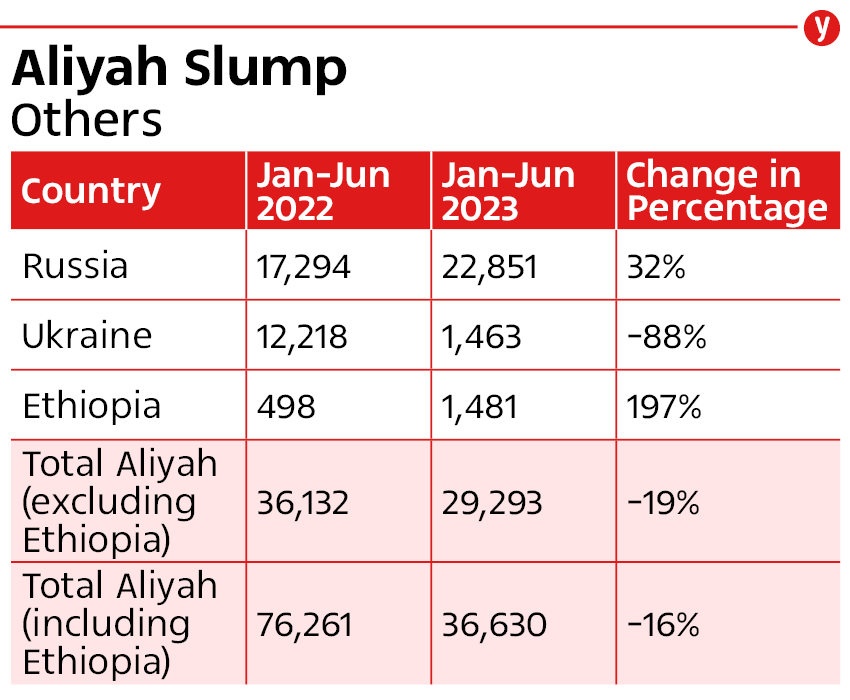Getting your Trinity Audio player ready...
Excluding Aliyah from Ethiopia and the former Soviet Union, immigration to Israel has seen a sharp decline in the first six months of 2023, according to an internal Jewish Agency document obtained by Ynet.
More stories:
The collapse of immigration numbers to Israel, especially of Jews from North America, Latin America and Western Europe, largely coincided with Justice Minister Yariv Levin’s announcement of his plan to overhaul the country’s legal system, sparking months of unprecedented mass street protests.
6 View gallery
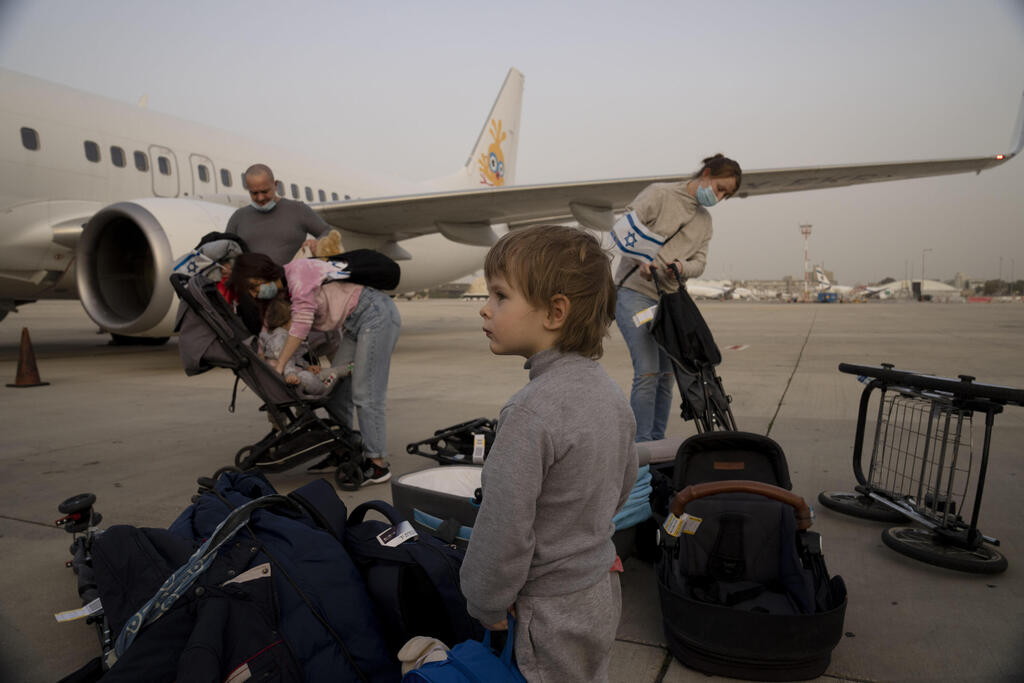

Ukrainian immigrants arrive in Israel after outset of Russian invasion, March 2022
(Photo: AP)
According to the report, which categorizes immigration data by countries and regions, the number of immigrants arriving from the United Kingdom plummeted by 40%, while Aliyah from Italy crashed by 60%, as in France which recorded the sharpest decline in all of Western Europe, both in percentage and absolute numbers, with immigration figures flooring from 965 arrivals in the first six months of 2022 to only 393 in the corresponding period this year. Meanwhile, a similar 40% decline was recorded in the number of immigrants arriving from Belgium.
However, immigration from Germany rose by 13%, contrasting with a similar slide in the number of immigrants from the Netherlands.
Aliyah from Scandinavian countries hiked 35% compared to the corresponding period last year while Jewish immigration from the Iberian Peninsula was also on the upturn, with the report recording a growing number of Olim from both Spain and Portugal. Meanwhile, Aliyah from Turkey climbed 45%.
The Aliyah from the United States also experienced a steep 33% drop-off compared to last year while immigration from its neighbor to the north Canada slumped 40%. Excluding the two countries mentioned above, immigration from North America dipped by 34%, South America by 35% and Oceania by 43%.
While Aliyah from Mexico and Colombia rose by 16% and 26%, respectively, the rest of the Latin American countries continued their downward trend, with immigration from Uruguay decreasing by 26%, Argentina 48%, Brazil 30%, Venezuela 46%, Peru 61% and Chile 40%.
Immigration from Russia, which has been at war with Ukraine for over a year, has jumped by a third, comprising the lion’s share of arrivals to Israel since the beginning of the year with 22,851 Russian nationals opting to make the Jewish state their new home. Conversely, immigration from Ukraine crashed a staggering 88%.
Overall, excluding immigrants from Ethiopia who arrive under special quotas, there has been a 20% decline in the number of incoming immigrants to Israel since Levin’s announcement. Only 29,293 Jews have arrived in Israel in the past six months, compared to 36,132 in the corresponding period last year.
Aliyah and Integration Minister Ofir Sofer expressed reservations about linking slow Aliyah figures with the government’s legal plan.
"It is difficult to explain the reasons for this decline. It's very easy to come and say that it is related to the current situation. But this process began over a year and a half ago. Even in 2022, there was a decline, and it continues in 2023. It is a downward trend. We have not seen anything like this in almost a decade,” he told Ynet.
“We are currently developing a plan. We have no influence over the economic situation or wars, but I am upgrading absorption infrastructure for immigrants from Western countries, and I am focusing on young people because they are easier to move. That's where I emphasize.
We are already seeing glimpses. We have launched a program for French speakers at Ariel University, and the response has been amazing. Ultimately, what affects waves of immigration is primarily the economic situation, and also antisemitism. But the economic situation has the greatest impact. In the context of the Aliyah Ministry, I am trying to create a relative advantage in the areas of academia and knowledge, assistance with housing and community support."
Sources dealing with Aliyah told Ynet that "the number of immigrants from a specific place at a specific time can stem from a multitude of reasons, including both push factors that can vary and reasons that leave potential immigrants in their countries of origin. Changing economic conditions, housing, employment, and more ultimately impact any such decision - which is ultimately individual."
The Jewish Agency said, "Alongside an overall increase in the number of Olim, there is a downward trend this year in immigration from specific countries. The Jewish Agency works in collaboration with the Aliyah and Integration Ministry to develop programs that encourage immigration from around the world and diverse absorption programs to ensure optimal integration in Israel."
First published: 00:27, 07.17.23



